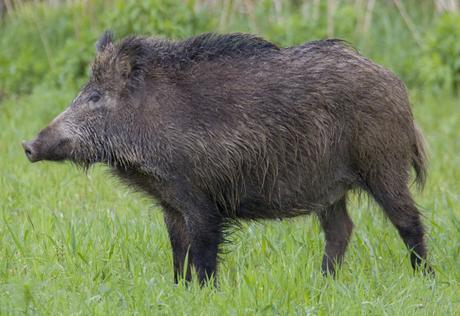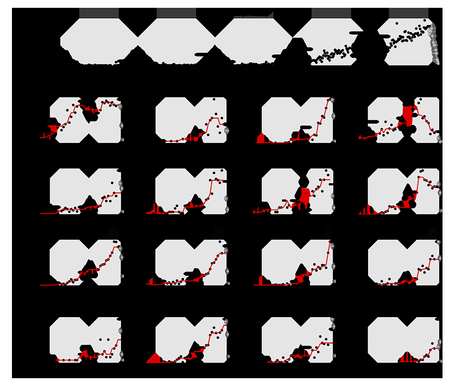GR: Invasive plants and animals are destroying native ecosystems. Some species that we take from their homes and release in other regions explode across the new habitat. Free from their natural competitors and diseases, the species are like Superman freed from Krypton’s light. Local species cannot compete and are replaced. I’ve studied some of the plant species that do this. You can read what I’ve learned here.
My work focuses on invasive plants, but animals can be equally destructive. The Eurasian Wild Boar is a good example of the hundreds of species impacting North American ecosystems. Here’s a brief review of the history of its introduction and spread in the U. S.

Feral Eurasian Wild Boar
Invasive species are second only to complete habitat destruction by roads and buildings as destroyers of nature. Global warming will take their place over the next few decades, but that doesn’t mean that we can ignore invasives. Protecting nature requires that we tend to all our destructive behaviors. My articles include suggestions and references to other resources for invasive plant control.
The article below from the National Geographic Society Blog reports that the invasive species problem is growing. Humans really began spreading species 500 years ago when they began crossing the oceans. It surprises me that we’ve left anything behind, but apparently we left enough invasive species behind to continue and even accelerate this form of the human impact.
“A study released this month has illustrated that the rate of species introductions to locations outside their native range is increasing faster than ever. Hanno Seebens and many others used the date of first records of introductions to plot the total number of new non-native species records every year since 1500. They show that this is not only increasing, but accelerating, with no signs of saturation. The increase was particularly marked since the 1800s. This global exchange of species is not good news, as although it increases species richness at the regional scale, globally the species richness of our planet declines as species go extinct.

Global temporal trends in first record rates (dots) for all species (a) and taxonomic groups (b–q) (Source: Nature Communications)
“New Zealand was singled out as one country whose trend was negative compared to the rest of the world. As any traveler to New Zealand will have encountered, the biosecurity importation laws and policing are rigorous and every passenger is screened. In tandem with a ‘white-list’, where only certain non-native species are automatically permitted entry, and all others must be assessed, has clearly assisted in protecting New Zealand’s biodiversity and primary industries from the global trend in accelerating species introductions.” –James Russell (Continue reading: Species Introductions Accelerating – National Geographic Society (blogs).)

